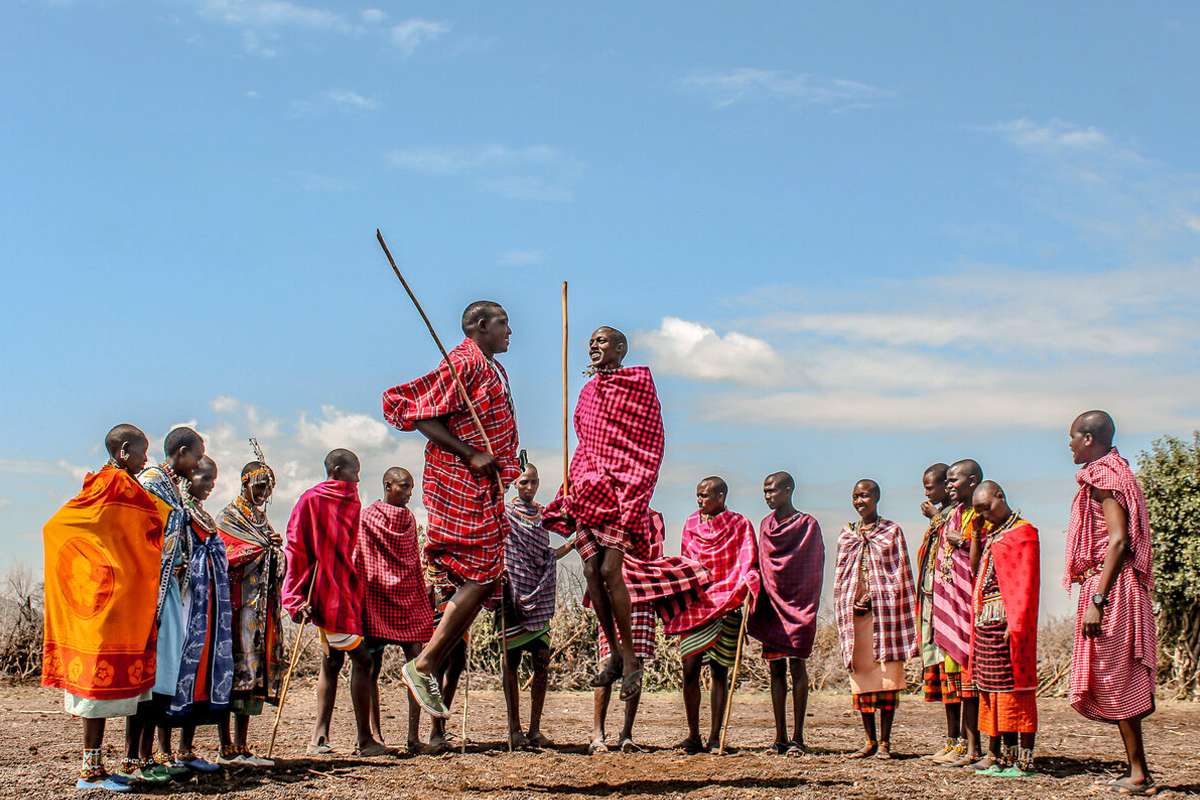Tanzania Maasai Culture UNESCO Recognition 2024
In 2024, UNESCO officially recognized Tanzania’s Maasai culture during its Cultural Heritage Week, a momentous achievement that highlights the rich and vibrant traditions of one of Africa’s most iconic communities. The recognition underscores the Maasai’s significant contribution to global cultural heritage, drawing attention to their unique way of life, customs, and historical importance. This prestigious accolade places Tanzania’s Maasai culture in the international spotlight and serves as a reminder of the importance of preserving indigenous traditions for future generations.
1. The Maasai Culture: A Glimpse Into Their Rich Heritage
The Maasai are a semi-nomadic pastoralist community living across southern Kenya and northern Tanzania. Known for their distinctive attire, traditional beadwork, and striking customs, the Maasai are one of Africa’s most recognized ethnic groups. Their way of life has remained relatively unchanged for centuries, with a strong connection to their cattle, which play a central role in their social, economic, and spiritual life.
Celebrating Maasai culture during UNESCO’s Cultural Heritage Week brings global awareness to the community’s deep-rooted traditions, including:
- Rites of Passage: The Maasai are famous for their elaborate ceremonies marking life milestones, such as circumcision, warrior initiation, and marriage.
- Traditional Clothing and Beadwork: Maasai men and women are known for their brightly colored shuka (clothing) and intricately crafted beadwork, which signify different aspects of social status and community roles.
- Spiritual Beliefs: Their spiritual beliefs are deeply tied to their cattle and the natural world, with a strong emphasis on ancestor worship and the role of elders in maintaining community harmony.
2. Why UNESCO Recognition Is So Significant
UNESCO’s recognition of the Maasai culture as part of its Cultural Heritage Week is a major milestone for the community, both locally and internationally. This designation serves multiple important purposes:
- Cultural Preservation: The Maasai’s traditional knowledge, languages, and practices are at risk due to globalization and modern influences. UNESCO’s recognition brings attention to the importance of preserving these elements for future generations.
- Global Awareness: This recognition increases global awareness about the Maasai culture, promoting cultural tourism in Tanzania and Kenya, and encouraging respect for indigenous communities.
- Economic Benefits: UNESCO recognition can boost tourism in regions with Maasai populations, bringing economic benefits through cultural tourism and the promotion of Maasai craftsmanship.
3. Tanzania’s Role in Promoting Maasai Heritage
As the home of a large Maasai population, Tanzania plays a critical role in preserving and promoting Maasai culture. The country has long recognized the Maasai as an integral part of its identity, and in recent years, there has been an increased focus on maintaining cultural traditions while also adapting to modernity.
- Cultural Tourism: Visitors to Tanzania often seek the opportunity to engage with the Maasai, whether through village tours, experiencing traditional dances, or staying in Maasai-run lodges. Cultural tourism, which includes Maasai experiences, has become an important part of the tourism sector in Tanzania.
- Government Support: The Tanzanian government has worked to ensure that Maasai culture is respected and protected, supporting initiatives that allow the community to maintain their heritage while also benefiting from sustainable tourism and modern infrastructure.
4. Impact of UNESCO Recognition on Maasai Communities
For the Maasai people, UNESCO recognition brings a renewed sense of pride and acknowledgment of their cultural significance. The recognition highlights their resilience in the face of challenges and their ongoing contributions to the world’s cultural diversity. There are several benefits to this recognition:
- Increased Respect for Their Traditions: With UNESCO’s backing, Maasai cultural practices are likely to gain more respect and appreciation, both within Tanzania and around the world.
- Cultural Revitalization: This recognition may inspire a revival of traditional practices and arts among younger Maasai, ensuring that their heritage is passed down.
- Educational Opportunities: The global recognition of Maasai culture opens doors for educational programs focused on indigenous knowledge, offering opportunities for Maasai youth to learn about their heritage and share it with the world.
5. UNESCO’s Role in Cultural Heritage Week
UNESCO’s Cultural Heritage Week is an annual event that celebrates the diverse cultural landscapes and traditions that shape the world’s heritage. The event aims to raise awareness about the importance of cultural preservation and the challenges faced by many indigenous cultures in the modern world.
- Highlighting Cultural Diversity: The week focuses on different aspects of cultural heritage, from intangible cultural practices like language and music to tangible heritage such as architecture and monuments. The Maasai culture’s inclusion this year highlights the diversity and value of African traditions.
- Global Cultural Dialogue: The recognition fosters dialogue between cultures, helping the world to better understand and appreciate the traditions of indigenous communities like the Maasai.
6. The Maasai’s Contribution to Global Cultural Heritage
The Maasai community’s impact extends beyond their own borders. As one of the most well-known African cultures globally, the Maasai have contributed to the world’s understanding of pastoralism, sustainability, and traditional knowledge systems.
Their cultural practices, which emphasize respect for nature, community cohesion, and resource conservation, offer important lessons in sustainable living—an area of growing global interest.
- Environmental Stewardship: The Maasai’s relationship with the land and their sustainable practices in cattle rearing provide valuable insights into managing natural resources and biodiversity.
- Social Structure: The Maasai social structure, with its emphasis on elder-led councils and age-set systems, offers unique perspectives on governance, community roles, and social organization.
7. Celebrating Maasai Culture in Tanzania
As Tanzania continues to promote and protect its cultural heritage, the Maasai remains a key symbol of the country’s identity. From the bustling cities to the remote villages, the Maasai culture is woven into the fabric of Tanzania’s society. Celebrations during the UNESCO recognition will likely include:
- Cultural Festivals: Local festivals showcasing Maasai music, dance, and crafts will give visitors a chance to experience Maasai traditions up close.
- Tourist Engagement: Visitors can participate in cultural tours, visit Maasai villages, and learn from Maasai elders, gaining a deeper understanding of their customs.
8. A Bright Future for Maasai Culture
UNESCO’s recognition of Maasai culture during Cultural Heritage Week is a monumental moment for Tanzania. It affirms the importance of indigenous traditions and the value they bring to the global cultural landscape. As the world increasingly recognizes the Maasai’s contributions to humanity’s cultural heritage, this recognition paves the way for greater understanding, respect, and collaboration across borders. It also signals a bright future for the preservation of Maasai culture, ensuring that their customs and way of life continue to inspire and educate future generations.
FAQs
1. What does UNESCO’s recognition mean for the Maasai people?
It acknowledges the Maasai culture as an important part of global cultural heritage, highlighting its value and promoting its preservation for future generations.
2. How can tourists experience Maasai culture in Tanzania?
Tourists can engage with Maasai culture through village tours, participating in traditional dances, learning about Maasai customs, and visiting Maasai-owned lodges.
3. What impact does this recognition have on Tanzania’s tourism?
This recognition enhances cultural tourism, increasing interest in Maasai experiences and bringing economic benefits to local communities through sustainable tourism.
4. How has the Tanzanian government supported Maasai culture?
The government has implemented policies that protect Maasai traditions, promote cultural tourism, and ensure that the community benefits from both cultural preservation and modern development.
5. Why is Maasai culture important to global heritage?
The Maasai represent a living example of sustainable living, pastoralism, and traditional governance, offering valuable lessons in environmental stewardship and social organization.
Plan Your Dream Safari and Cultural Experience in Tanzania!
Explore our pages to learn more about:
- Tanzania Family Safari
- Tanzania Honeymoon Safari
- Tanzania Safari Experiences
- Tanzania Walking Safari
- Terms and Conditions
- Zanzibar Vacation
- Maasai Village Experience
Begin crafting memories with us and start your adventure by visiting our website!



